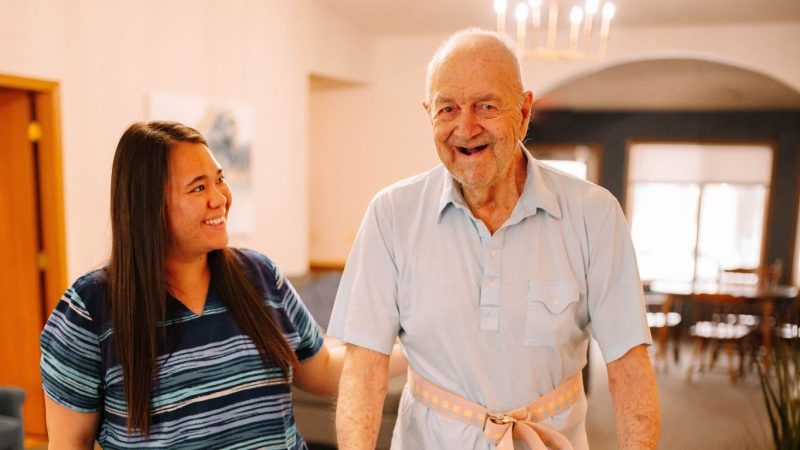The Importance of Male Friendships in Senior Communities
Moving into an assisted living community represents a significant life transition. While…
Traditions Senior Care Team | December 01, 2024
Caregivers in assisted living communities play a pivotal role in enhancing the quality of life for seniors. Beyond providing basic needs, they offer compassionate care that addresses the physical, emotional, and social well-being of residents.
Compassionate care is the cornerstone of quality assisted living. It’s more than just fulfilling physical needs; it’s about nurturing the whole person – mind, body, and spirit.
While assisting with ADLs (Activities of Daily Living) like bathing, dressing, and medication administration is fundamental, physical care extends much further. It involves:
Emotional support is crucial for residents’ mental well-being. Caregivers can provide:
Social interaction is essential for preventing isolation and loneliness. Caregivers can:
Cognitive stimulation helps maintain mental acuity and prevent cognitive decline. Caregivers can:

Compassionate care has a profound impact on the lives of seniors. It can:
Beyond preventing injuries and managing chronic conditions, compassionate care can significantly improve physical health by:
Compassionate care can positively impact mental health by:
Cognitive stimulation can help seniors maintain mental sharpness and delay cognitive decline by:
Compassionate care can significantly enhance the quality of life for seniors by:

When selecting an assisted living community, it’s essential to consider the quality of care provided by caregivers. Look for facilities that:
Compassionate caregiving is a cornerstone of quality assisted living. By understanding the multifaceted roles of caregivers and the significant benefits they provide, we can ensure that seniors receive the care and support they deserve.
Ready to provide your loved one with the best possible care? Contact us today to learn more about our compassionate caregiving services and to schedule a tour of our community.
Moving into an assisted living community represents a significant life transition. While…
Moving into an assisted living community represents a significant life transition. While…
Dementia and Alzheimer's disease present unique challenges, not only for the individuals…